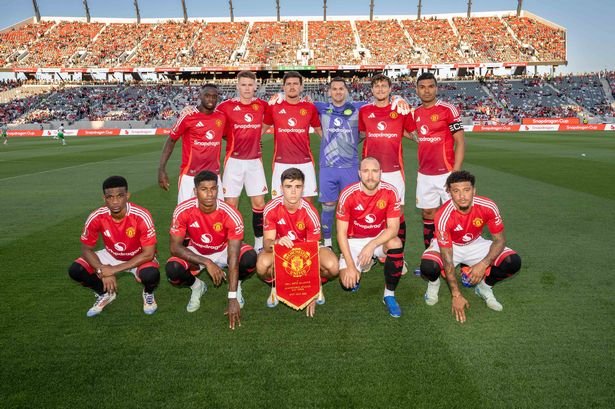For prominent Premier League teams like Manchester United, discovering new revenue avenues is becoming increasingly crucial in the upcoming years. Although broadcasting rights have been rising for over a decade, the latest £6.7 billion deal for domestic rights may appear to be a significant £1.7 billion increase from the previous cycle. However, a closer look reveals important insights regarding the future of broadcasting rights. The previous £5 billion contract spanned three years covering 200 games each season, while the new agreement lasts four years and includes 270 games per season, resulting in a decreased value per game. As for international rights, even though there’s still potential for growth, the reality is that broadcasters cannot continuously pay higher amounts when subscriber numbers are declining, especially with increasing challenges such as the growth of piracy through IPTV significantly impacting them. The streamers have started to explore this area, but investing significant amounts like traditional broadcasters is probably not a sustainable strategy. Additionally, both matchday and commercial revenues have their constraints. United plans to construct a new stadium with a capacity of 100,000 next to Old Trafford, which is expected to greatly enhance their already substantial matchday income. However, there will always be limitations on what can be achieved with physical infrastructure. In terms of commercial partnerships, sponsors are increasingly looking for tangible returns on investment based on specific key performance indicators. The straightforward exchange of money for logo placements on jerseys and billboards is no longer sufficient. Partnerships need to be significant and effective; otherwise, they fail to endure and the sponsorship value declines. For about twenty years, pre-season has provided clubs an opportunity to generate additional revenue through tours across various countries and continents, helping to connect with a global fanbase and enhance the brand’s growth, which can lead to increased merchandising capabilities. READ MORE: Andre Onana sparks debate among former Manchester United teammates. READ MORE: Ole Gunnar Solskjaer’s change of stance on transfers may assist Manchester United in finalizing a last-minute deal. Since 2009, the Premier League has been discussing the concept of a ’39th game’. The primary American sports leagues, including the NBA, NFL, and MLB, have consistently ventured into the UK and other significant markets to play regular season matches, beyond merely exhibition games. This strategy has proven to be profitable and has facilitated the expansion of each league’s brand.


